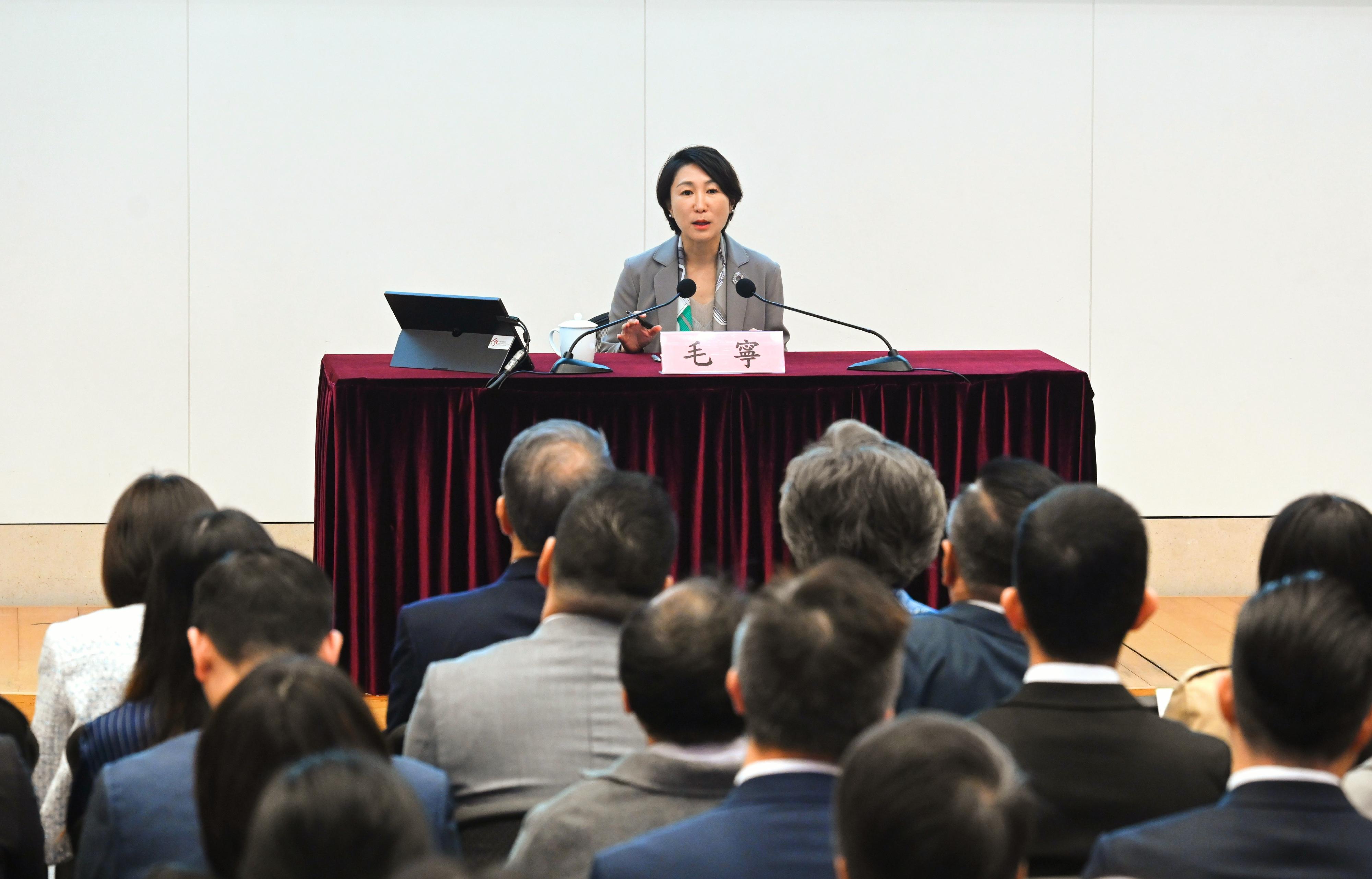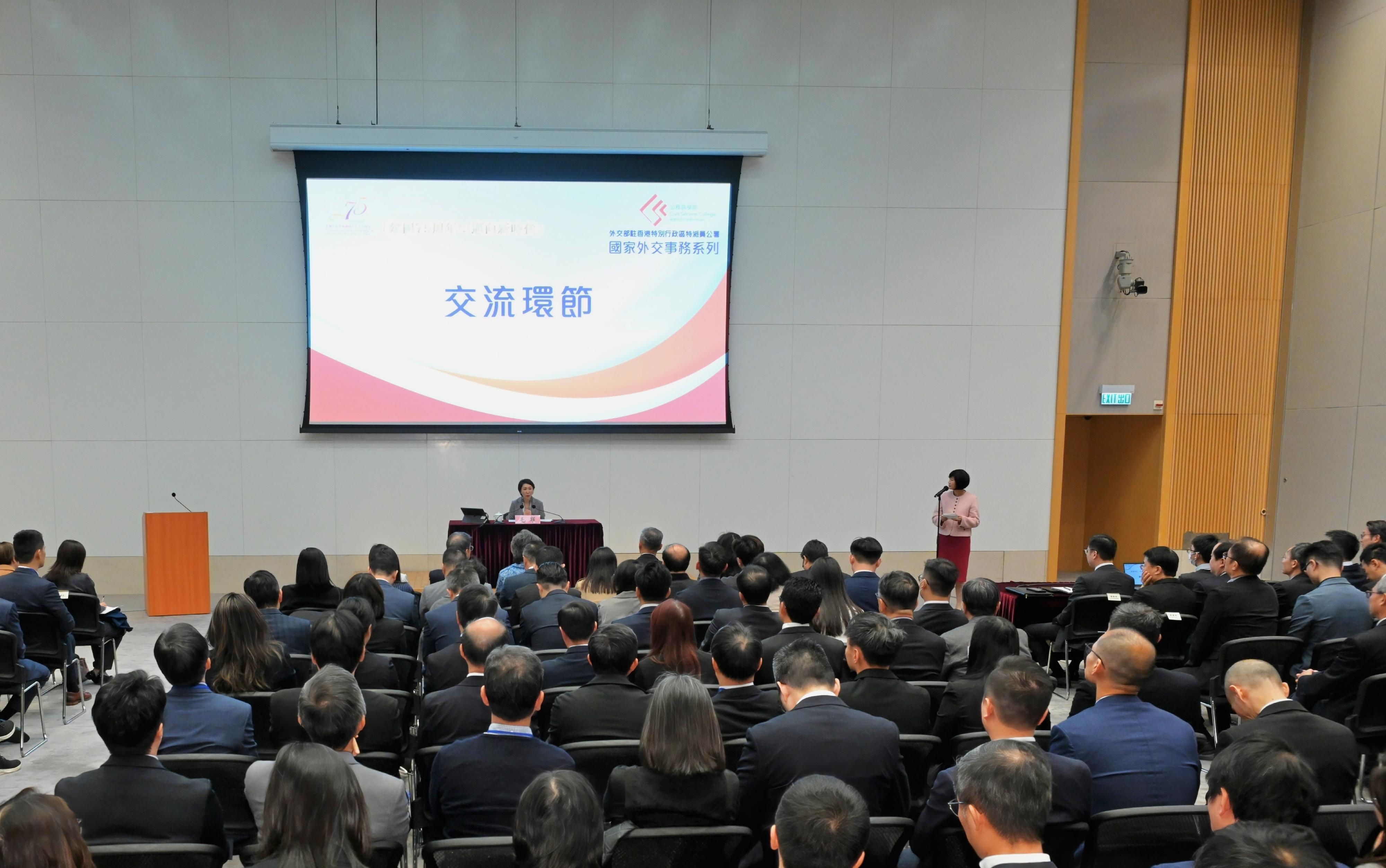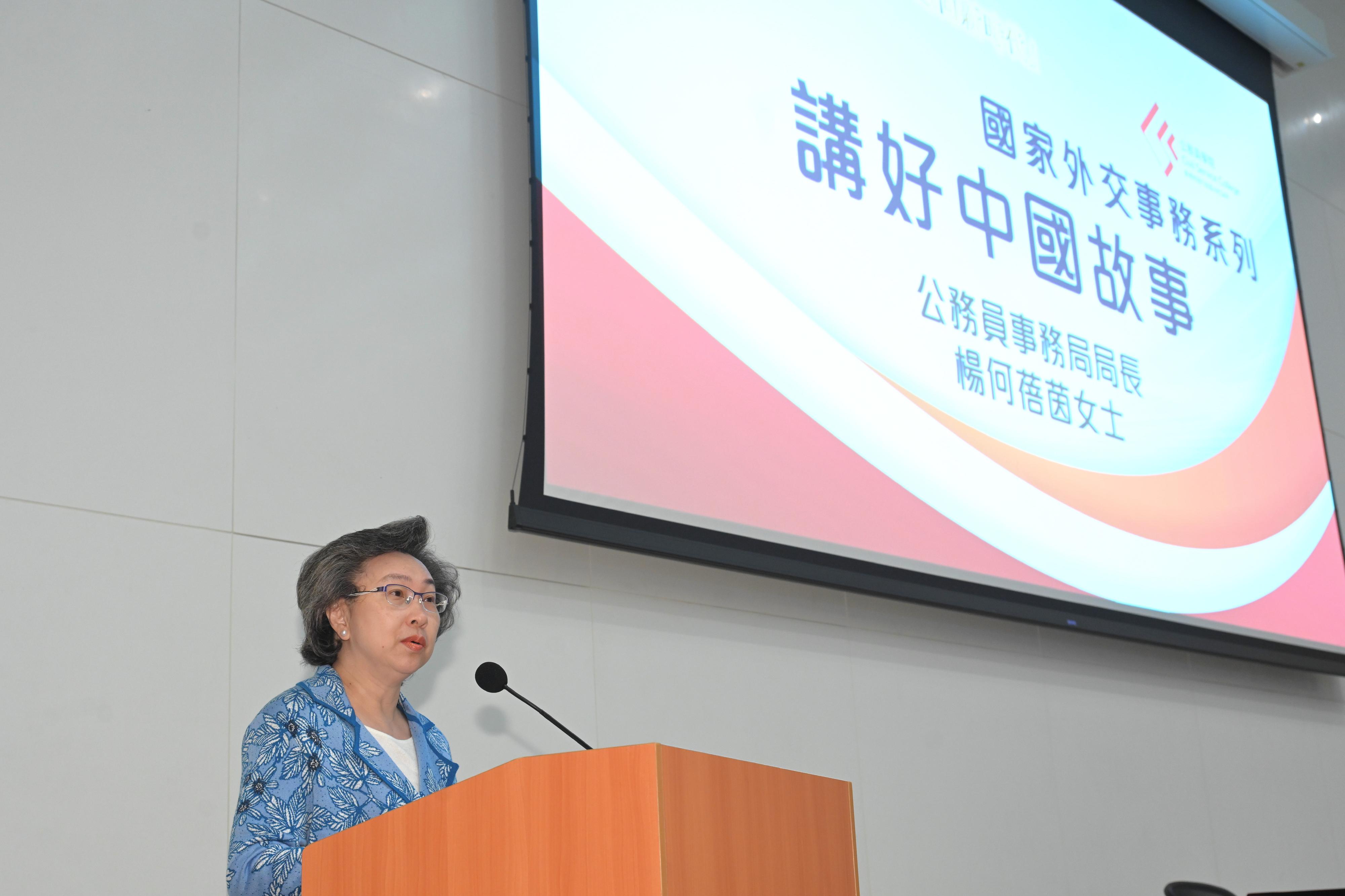LCQ5: Helping enterprises leverage artificial intelligence technologies
Following is a question by the Hon Dominic Lee and a reply by the Secretary for Innovation, Technology and Industry, Professor Sun Dong, in the Legislative Council today (December 18):
Question:
There are views that while various places across the globe have been actively developing industries related to artificial intelligence (AI) in recent years, Hong Kong enterprises still face problems such as geographical restrictions and insufficient funds in applying AI technologies. In this connection, will the Government inform this Council:
(1) as it has been reported that in July this year, the developer of ChatGPT, an AI tool, restricted the provision of application programming interface services to regions including Hong Kong, whether the Government has discussed with the developer the lifting of the restriction; if so, of the details; if not, the reasons for that;
(2) given that the Government launched the Artificial Intelligence Subsidy Scheme (AISS) in October this year to subsidise eligible enterprises to make the best use of the computing power of the AI Supercomputing Centre to achieve more breakthroughs in AI scientific research and applications, of the total number of AISS applications received so far; whether the Government will provide technical support to the funded enterprises and extend AISS to cover small and medium enterprises and associations, so as to enhance their AI application capabilities and market competitiveness; and
(3) as there are views that Mainland cities in the Guangdong-Hong Kong-Macao Greater Bay Area have advantages in AI development, whether the Government has formulated specific measures to assist Hong Kong enterprises in strengthening their cooperation with the institutions in these cities in the field of AI technologies, and to provide development opportunities for local AI start-ups; if so, of the timetable; if not, the reasons for that?
Reply:
President,
In respect of the question raised by the Hon Dominic Lee, my reply is as follows:
(1) Hong Kong is a free market economy. We welcome enterprises from around the world to run businesses in Hong Kong and provide diversified services and products to the local market, including ChatGPT from the United States. On the other hand, we respect the marketing strategies and commercial arrangements of individual enterprises regarding their products in different markets.
In recent years, various large language models (LLMs) emerge, with numerous enterprises in Hong Kong, the Mainland and overseas offering different generative artificial intelligence (GenAI) applications. With the support of the InnoHK research cluster, the Hong Kong Generative AI Research and Development Center (HKGAI), formed by research teams of local universities, is dedicated to the development of GenAI technologies and LLMs based on local databases. It is also in the process of devising a GenAI document processing application. Over 40 bureaux and departments are participating in the internal trial use programme.
With the advance in artificial intelligence (AI) technology and more application scenarios, we anticipate that more AI products with competitive edges catering to the needs of the local market and different sectors will be made available in Hong Kong.
(2) The Legislative Council has approved $3 billion for the Government to put in place a three-year AI Subsidy Scheme (Scheme), mainly to subsidise local universities, research institutes and AI-related enterprises in leveraging the high-performance computing services of Cyberport’s AI Supercomputing Centre (AISC).
Since the launch of the Scheme in October this year, Cyberport has received around 10 applications. An independent committee appointed by the Government has conducted initial assessment on the first batch of applications. Upon completion of further vetting, we expect the approved projects to finalise their planning and be commenced soon.
The organisations subsidised under the Scheme will not only receive financial support, but also benefit from the innovative platform offered by Cyberport as a technology park that pools computing power, technology and talents together. It will bridge the supply and demand sides of AI, enabling product innovations and facilitating the convergence of technology transformation and application scenarios. While ordinary enterprises or organisations are unlikely to require the high-performance computing power of the AISC or apply the LLMs so derived directly, they could take advantage of the thriving AI ecosystem and gain access to more technology products that respond to market needs.
(3) Hong Kong is highly competitive in the field of AI. Our research foundation is strong, as evident by the top global rankings in AI and data science attained by a number of local universities. The AIR@InnoHK research cluster focussing on AI and robotic technologies has established 15 research and development laboratories (including HKGAI) and attracted top-notch global talents. The Hong Kong Science Park and Cyberport are also home to more than 800 AI-related enterprises, drawing over a hundred AI enterprises to land this year, thereby fuelling Hong Kong as an AI powerhouse.
Under “One Country, Two Systems”, Hong Kong is endowed with the distinctive advantages of converging both Mainland and international data, creating a favourable environment for strengthening our AI-related collaboration with the Mainland (particularly the Guangdong-Hong Kong-Macao Greater Bay Area (GBA)). Specifically, we signed the “Co-operation Agreement on Technology and Innovation Exchange between Guangdong and Hong Kong” with the Department of Science and Technology of the Guangdong Province in March 2023 to further deepen technology and innovation exchanges as well as bolster collaborative innovation of industries, academia and research between the two places. The Guangdong-Hong Kong Technology Cooperation Funding Scheme jointly implemented by the Guangdong and Hong Kong governments has also been encouraging co-operation between universities, research institutions and technology enterprises from both places in technology areas (including AI), and promoting work on high technology and the transformation of scientific and technological achievements, with a view to enhancing the productivity and competitiveness of enterprises in both places.
We will continue to foster collaboration on innovation and technology between Hong Kong and Mainland GBA cities, and encourage our local enterprises to tap into the opportunities in the GBA and expand into Mainland markets. read more




